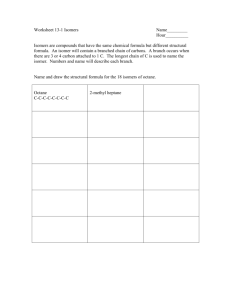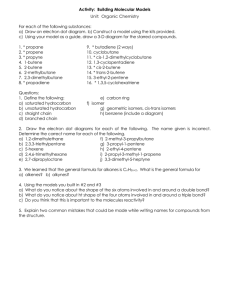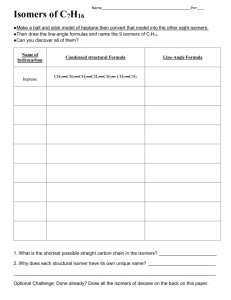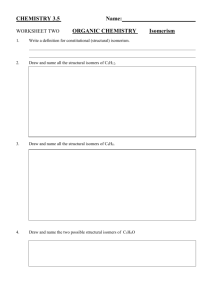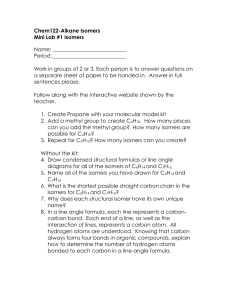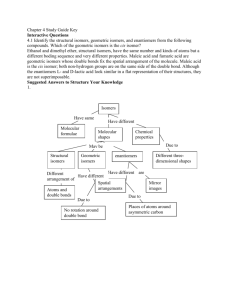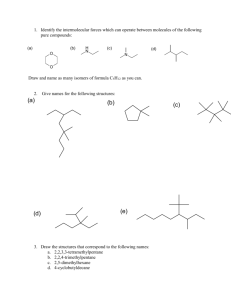a pair of position isomers:
advertisement
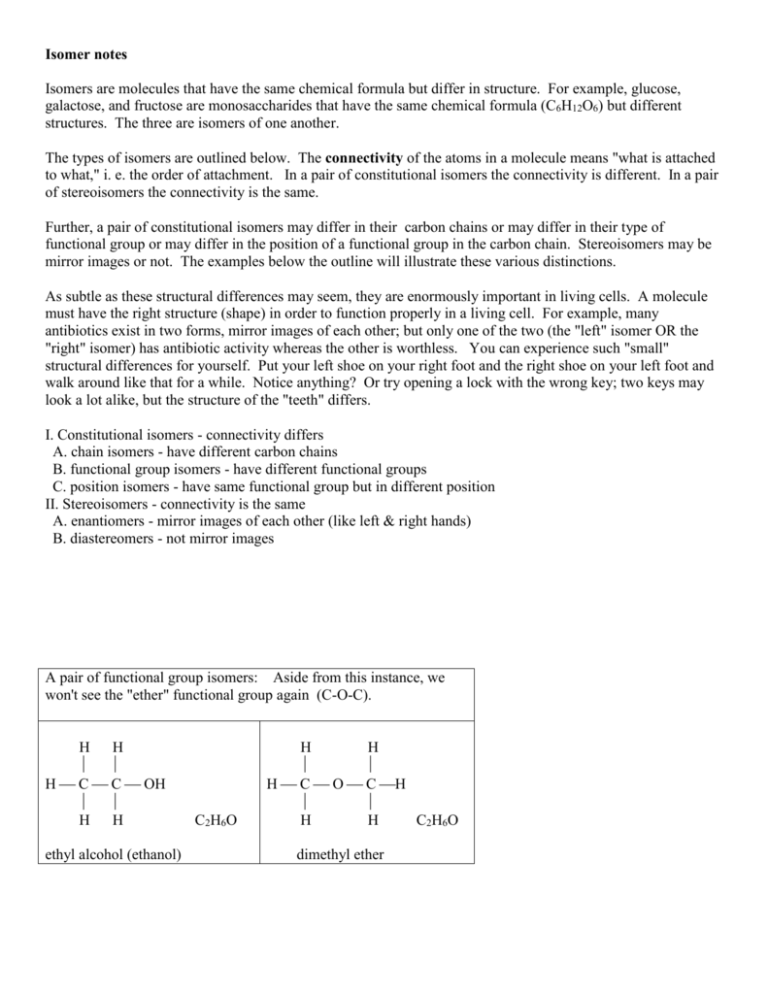
Isomer notes Isomers are molecules that have the same chemical formula but differ in structure. For example, glucose, galactose, and fructose are monosaccharides that have the same chemical formula (C6H12O6) but different structures. The three are isomers of one another. The types of isomers are outlined below. The connectivity of the atoms in a molecule means "what is attached to what," i. e. the order of attachment. In a pair of constitutional isomers the connectivity is different. In a pair of stereoisomers the connectivity is the same. Further, a pair of constitutional isomers may differ in their carbon chains or may differ in their type of functional group or may differ in the position of a functional group in the carbon chain. Stereoisomers may be mirror images or not. The examples below the outline will illustrate these various distinctions. As subtle as these structural differences may seem, they are enormously important in living cells. A molecule must have the right structure (shape) in order to function properly in a living cell. For example, many antibiotics exist in two forms, mirror images of each other; but only one of the two (the "left" isomer OR the "right" isomer) has antibiotic activity whereas the other is worthless. You can experience such "small" structural differences for yourself. Put your left shoe on your right foot and the right shoe on your left foot and walk around like that for a while. Notice anything? Or try opening a lock with the wrong key; two keys may look a lot alike, but the structure of the "teeth" differs. I. Constitutional isomers - connectivity differs A. chain isomers - have different carbon chains B. functional group isomers - have different functional groups C. position isomers - have same functional group but in different position II. Stereoisomers - connectivity is the same A. enantiomers - mirror images of each other (like left & right hands) B. diastereomers - not mirror images A pair of functional group isomers: Aside from this instance, we won't see the "ether" functional group again (C-O-C). H H H C C OH H H ethyl alcohol (ethanol) C2H6O H H H C O C H H H C2H6O dimethyl ether A pair of chain isomers: H H H H H C C C C H H H H H C4H10 normal butane H H H H C C C H H CH3 H C4H10 isobutane A pair of position isomers: H H H H C C C OH H H H C3H8O H H H H C C C H H OH H C3H8O normal propyl alcohol (propanol) isopropyl alcohol (isopropanol) A pair of diastereomers: Here the connectivity is the same, but the structures differ. However, they are not mirror images. These two are also called a pair of geometric isomers. Since there's no free bond rotation at C=C, cis and trans can't be interconverted without breaking a bond. CH3 H \ / C=C / \ H CH3 CH3 CH3 \ / C=C / \ H H C4H8 trans-2-butene C4H8 cis-2-butene Some examples (from among thousands) of why isomers make a difference: [Take home message: it’s important to have the right isomer.] Progesterone and tetrahydrocannabinol (THC) are isomers of each other. Progesterone is a female sex hormone in humans. THC is the primary hallucinogenic agent in marijuana. Same chemical formula, different structures, very different effects in the human body Captopril is one of the ‘ACE inhibitors.’ It is used to treat hypertension because it relaxes muscles in the walls of blood vessels. Captopril exists in multiple isomeric forms, only one of which is the active drug. (ACE = angiotensin converting enzyme, for anyone wanting to read more) Isolating that one from the others can contribute to the cost of the drug. Why go to the trouble of isolating that one? See thalidomide below, as an example. Penicillin: only one of the two isomeric forms kills bacteria. Isomers may differ in odor and taste, for example: ▪ Air fresheners containing citrus fragrance are popular, turpentine-scented air fresheners not so much. ▪ Spearmint chewing gum and breath mints are popular. Caraway flavored gum?
